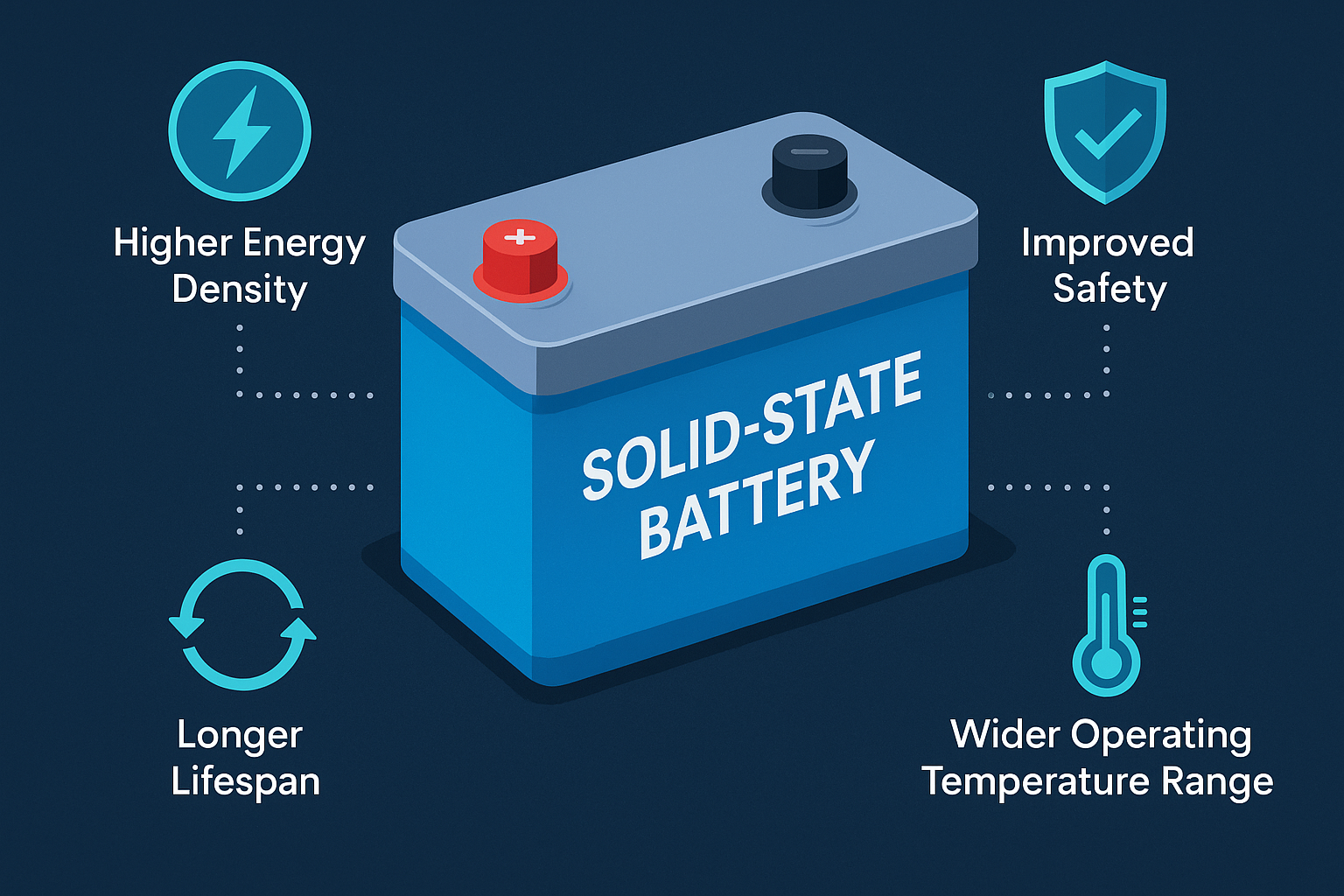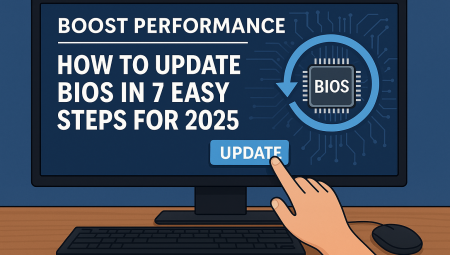Solid state batteries (SSBs) are emerging as a revolutionary breakthrough in the world of energy storage. By replacing the flammable liquid electrolyte in conventional lithium-ion batteries with a solid material, SSBs unlock significant improvements in performance, safety, and sustainability.
Whether you’re a tech enthusiast, EV manufacturer, investor, or sustainability advocate, understanding the real-world advantages of solid state batteries can help you anticipate the next big leap in battery innovation.
This article provides an expert breakdown of solid state battery benefits, the industries they’re transforming, and why they matter in a 2025 context.
What Are Solid State Batteries?
Solid state batteries use solid electrolytes—such as ceramics, glass, or polymers—instead of the liquid or gel electrolytes found in traditional lithium-ion batteries.
This allows them to achieve better energy density, improved thermal stability, and longer life cycles. These batteries are seen as the key to unlocking next-gen electric vehicles, wearable devices, grid storage, and aerospace applications.
7 Key Solid State Battery Advantages in 2025
1. Enhanced Safety and Thermal Stability
Liquid electrolytes in lithium-ion batteries are highly flammable. In contrast, solid electrolytes are non-volatile and significantly reduce fire and explosion risks—even under high temperature or impact.
2. Higher Energy Density
Solid state batteries can store more energy per unit volume, allowing for:
- Longer EV driving ranges (up to 800km on a single charge)
- More compact device designs
- Higher payload efficiency in aerospace
3. Faster Charging Times
Thanks to their robust chemical properties, SSBs allow faster ion movement:
- Full EV recharge in under 15 minutes
- Reduced charge stress on battery materials
- Improved charging infrastructure compatibility
4. Longer Lifecycle and Durability
SSBs experience significantly less degradation over time:
- Up to 2,000+ charge-discharge cycles
- Less dendrite formation (a key cause of battery failure)
- Lower maintenance requirements
5. Wider Operating Temperature Range
They perform better in both extremely hot and cold environments:
- Suitable for aerospace, military, and remote applications
- More stable performance across global climates
6. Smaller Form Factor and Lightweight Design
Solid state batteries don’t require bulky thermal management systems:
- Enables thinner, lighter devices
- Critical for wearables, drones, and mobile electronics
7. Eco-Friendly and Sustainable Materials
Some SSBs eliminate cobalt and other rare-earth elements, leading to:
- Reduced environmental impact
- Easier recycling and end-of-life management
- Lower reliance on conflict minerals
Industries Benefiting from Solid State Batteries
Automotive (EVs)
Major automakers like Toyota, BMW, and Ford are investing billions into SSB research, aiming to deploy commercial vehicles with these batteries by 2026.
Consumer Electronics
Thinner smartphones, longer-lasting wearables, and safer tablets are possible with SSB technology.
Aerospace & Defense
From satellites to autonomous drones, SSBs offer energy solutions with the stability and endurance required in harsh conditions.
Grid Storage
SSBs could support safer, longer-duration energy storage for renewables like solar and wind—especially in urban and disaster-prone regions.
Why Are Solid State Batteries Better?
Solid state batteries are better than traditional lithium-ion batteries because they are safer, have higher energy density, charge faster, last longer, and use less harmful materials. These advantages make them ideal for electric vehicles, aerospace, and consumer electronics.
Pro Tips for Innovators and Investors
- Focus on scalability – Not all SSBs are commercially viable; track companies working on mass production.
- Watch for electrolyte breakthroughs – Ceramics, sulfides, and polymers have different tradeoffs.
- Expect early use in premium products – Flagship EVs and aerospace will adopt first.
- Monitor government regulations and subsidies – Many countries are backing clean battery tech.
- Plan for infrastructure compatibility – SSBs may require new charging standards.
- Evaluate lifecycle costs, not just performance metrics.
Frequently Asked Questions (FAQ)
Are solid state batteries already available?
Some are in limited use (e.g., pacemakers), but mass-market applications like EVs are expected by 2026–2027.
What’s the biggest challenge in adopting SSBs?
High production costs and scalability remain the main barriers. Manufacturing techniques and raw materials are still being optimized.
Will solid state batteries replace lithium-ion completely?
Not immediately. SSBs will likely coexist with lithium-ion batteries in the short term, gaining share in premium segments first.
Are they truly safer?
Yes, solid electrolytes are far less flammable and reduce the risk of thermal runaway—a common cause of battery fires.
Can they be recycled?
Emerging SSB designs are being built with recyclability in mind, including simplified material separation.
Conclusion
Solid state batteries hold the key to safer, lighter, and more efficient energy solutions for the next generation of devices and vehicles. As global demand for clean energy and high-performance electronics rises, SSBs are emerging not just as an alternative—but as a necessary evolution.
From EV manufacturers to aerospace engineers and green energy investors, those who understand and adopt solid state battery technology early are likely to lead the next wave of innovation.
💬 What Are Your Thoughts on Solid State Batteries?
Are you excited about the future of SSBs? Which advantage do you think will have the most impact? Share your opinions or questions in the comments below!



